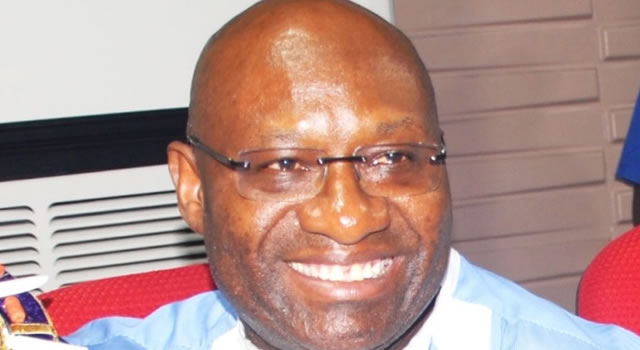Business
Heritage Bank partners WATIF on sub-regional integration of economies

Heritage Bank Limited, has partnered with the West Africa Trade and Investment Forum: Conference and Exhibition on sub-regional integration of economies of West African countries in the areas of agriculture, education and skills, manufacturing and information communication technology (ICT).
Mr. Olugbenga Awe, Group Head, Agric and Exports of Heritage Bank said the bank was involved in the maiden edition of the project because, it relates to the development of Nigeria’s Small and Medium Scale Enterprises (SMEs).
He said SMEs are the bedrock of the economy, as they (SMEs) employ labour and in terms of contribution to the Gross Domestic Product (GDP) they are the future of the economy.
Awe was also a keynote speaker at a roundtable discussion on agriculture which recommended soil and seed quality for improved agricultural output, mechanised farming and cluster blocks to enhance value in terms of pricing of agricultural commodities.
Other recommendations included the use of technology, creation of market hubs, setting up of website for farmers to upload information about their products and standardisation of products across the sub-region among others.
Earlier in her address of welcome, Mrs. Michele Branco-Aiyegbusi, Director of WATIF, stated that WATIF 2018, themed “Enhancing Collaboration for Regional and Economic Impact” could not have come at a more auspicious time, as it comes right on the heels of the African Continental Free Trade Agreement signed a few days earlier by 44 African countries in Kigali, Rwanda.
Read also: Telecom firms drag Nat’l Assembly to court
She expressed the hope that they were optimistic that genuine efforts towards integration and economic collaboration would not only bring about a boost in the economic standing of Africa globally, but indeed opportunities for growth and development of the sub-region.
She remarked that with the focus of the maiden edition of WATIF on four sectors, the forum has been able to pool into the discourse industrialists and key drivers from these sectors who they hoped would be open minded in addressing the issues and barriers to trade and development in the sub-region.
The director added that the industrialists would collectively agree on proffering solutions and strategies that would be implementable first within the sectors and hopefully by policy makers.
Also speaking, Mrs. Bukunola David, director special projects, noted that “West Africa agro ecological potential is massively lower than its current output and so are its food requirements, adding that while more than one quarter of the world’s arable land lies in the African continent, it generates only 10 percent of global agricultural output.”
In the area of manufacturing, Mrs. David noted that while multinational consumer companies were thriving in West Africa 95 percent of its population and 71 percent of their income remain at the base of the pyramid.
The special project director also observed in education and skills development that despite the abundant work opportunities, competent and skilled workers remain scarce across Nigeria, West Africa and Africa as a whole with companies bringing the gap in industries by using a mix of local and international employees.
Mrs. David also spoke on information and communication technology in the cybernetic generation and transformation of information through the use of man-made gadgets, remarking that the generation of accurate and useful information and its proper and real dissemination have always been of great importance to humans from time immemorial.
RipplesNigeria… without borders, without fears
Click here to join the Ripples Nigeria WhatsApp group for latest updates.
Join the conversation
Support Ripples Nigeria, hold up solutions journalism
Balanced, fearless journalism driven by data comes at huge financial costs.
As a media platform, we hold leadership accountable and will not trade the right to press freedom and free speech for a piece of cake.
If you like what we do, and are ready to uphold solutions journalism, kindly donate to the Ripples Nigeria cause.
Your support would help to ensure that citizens and institutions continue to have free access to credible and reliable information for societal development.
























